Introduction to the characteristics and Flavor of the Wild Rosa Coffee Bean Gold Standard Red Card in the Coffee Manor of Rosa Village, Ethiopia
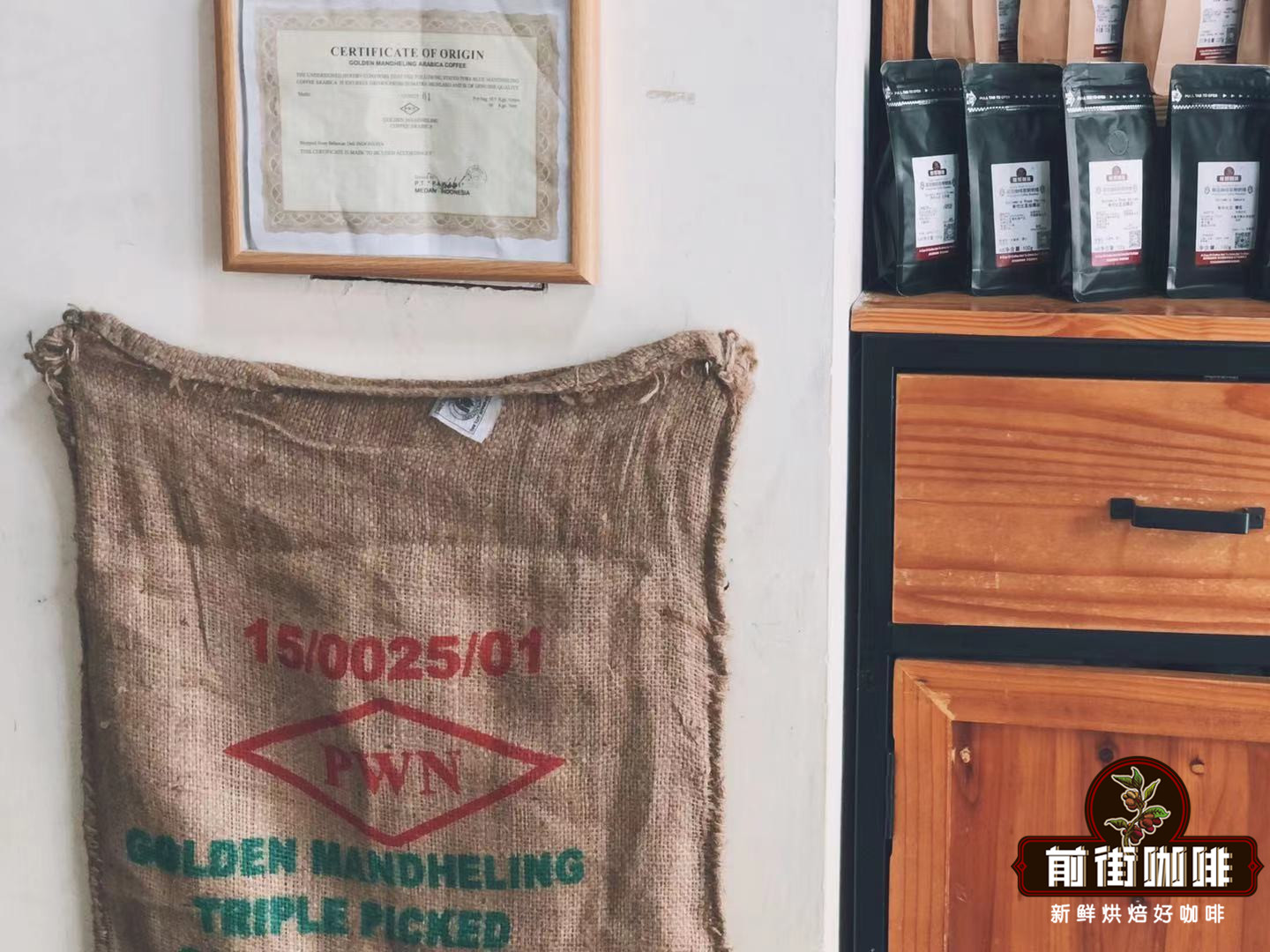
Professional coffee knowledge exchange more coffee bean information please follow the coffee workshop (Wechat official account cafe_style)
What we call rose summer generally refers to the rose summer (geisha, also known as geisha) produced in Panama, which is represented by the Emerald Manor. After it was specially identified because of its unique flavor in 2003, it has been the champion of many raw bean competitions, including BOP. In the daily brewing of coffee in the front street, Panamanian rose summer shows the fragrance of roses, citrus tone, more like a cup of flower and fruit tea. Jadeite Manor is one of the outstanding ones, one is that Jade Manor is the earliest discoverer of Rose Summer, the other is that Rose Summer is the winner of consecutive BOP championships, and the third is that it established its own quality system, and several years later, Rose Village Manor also adopted its own grading system. Qianjie Coffee once introduced its past in detail in the article Rose Summer of Jade Manor. Although the name of Rose Summer Village is the same as that of Panamanian Rose Summer, it is actually a completely unrelated bean species, which can be distinguished from the appearance of the two beans. Qianjie Coffee will discuss it separately as a rose summer variety of Ethiopia.
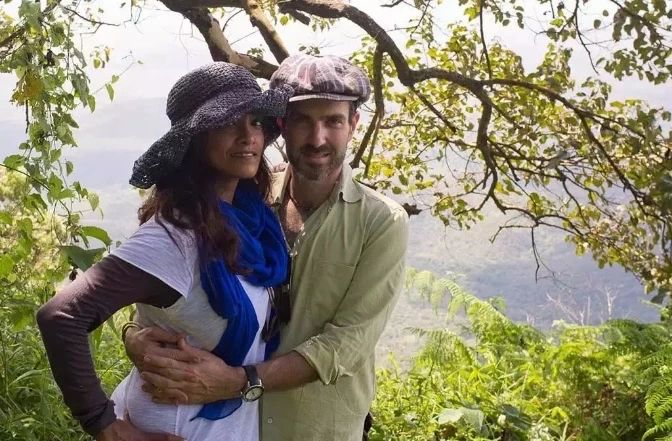
"what is the Rose Summer Village Manor? "
In 2007, documentary director Adam Overton and his photographer wife Rachel Samuel came into contact with the Gera Coffee Forest in the Banchi Magi region (Bench-Maji) while filming a documentary about Ethiopian coffee for the Ethiopian government. In the process, they not only got to know the great land of Ethiopia, but also came up with the idea of setting up their own coffee estates and brands.
In 2009, they were lucky enough to meet the famous mule owner, BOP judge Willem Boot, and the idea of Willem Boot returning to Ethiopia to find the birthplace of Rose Summer also provided an opportunity for the couple. In 2011 they returned to Banchi Maggie, where several areas are known as Rosa Village, where native Rosa varieties are most likely to be found.
Adam followed Willem Boot to explore the surrounding forest and discovered a variety of wild coffee trees in a jungle surrounded by dense forests (known as the Gori Rose Summer Forest), of which the most surprising was the native Rosa species. So they collected seeds from native rose trees, screened them, and planted them in Rosa Village. And decided to build the manor here and name it Gesha Village Coffee Estate (Rosa Village Coffee Manor)
Rosa Village Manor is located in the Bancimaghi region (Bench Maji) in western Ethiopia, which is surrounded by dense jungle. Ruoxia Village is located with beautiful scenery and pleasant climate, and the ancient and vast forest can be overlooked from above. The owners Adam and Rachel searched for a suitable manor for three years and went to the native forest of Rose Xia under the guidance of the locals. It is a two-day drive from the capital, Adis, Addis Ababa.
Ruoxia Village Manor covers an area of about 471 hectares, coffee cultivation area of about 320 hectares, brown red loam soil. The planting density was maintained at 7000 coffee trees per hectare. The site is named after the name "Oma" in honor of religious leaders who are respected and loved by the people. The coffee beans in Ruoxia Village are full of complex flavor and are very rare. They are often selected by internationally competitive baristas to participate in the competition. Due to the maintenance of the local ecological environment, and has a good cooperative relationship with local residents. To give back to the local community, the Rosa Village Foundation was set up to promote educational development through the two schools adjacent to the manor.

Grading system
There is a strict grading system in the manor of Guoxia Village, which is competitive bidding, gold bid, red bid, green bid and Chaka batch.
[bidding lot]
Accounting for only 3.7% of the annual output of Rose Xia Village, the top batch of the carefully selected manor can only be obtained through the global bidding of 2018 Rose Xia Village Coffee Manor. The cup test score of the 2018 bidding batch is 88.15-92.67 points, which is divided into champion selection (Champion's Reserve) and manor selection (Farm Reserve).
For example, Gesha Village 2018 Auction Lot RSV.6 belongs to the bidding batch.
[gold standard batch]
Jinbiao batch of coffee accounts for about 10% of the annual output of Rose Xia Village Manor, the taste is complex, very rare. These rare coffees are the top coffee at the Rosa Village Manor except for bidding batches.
Many baristas will choose gold standard batches as their competition beans, and bakers with high quality requirements will also purchase, with complete traceability, outstanding flavor and high complexity of each batch.
Gesha Village Oma 059 Guoxia Village Oma 059 batch
Grade: Rarities (Gold) label Gold Standard
Treatment: insolation (32 days)
Product: Gesha 1931
Guojia: Ethiopia Ethiopia
Production area: Bench Maji Banchi Maggie
Altitude: 1931-2040 m
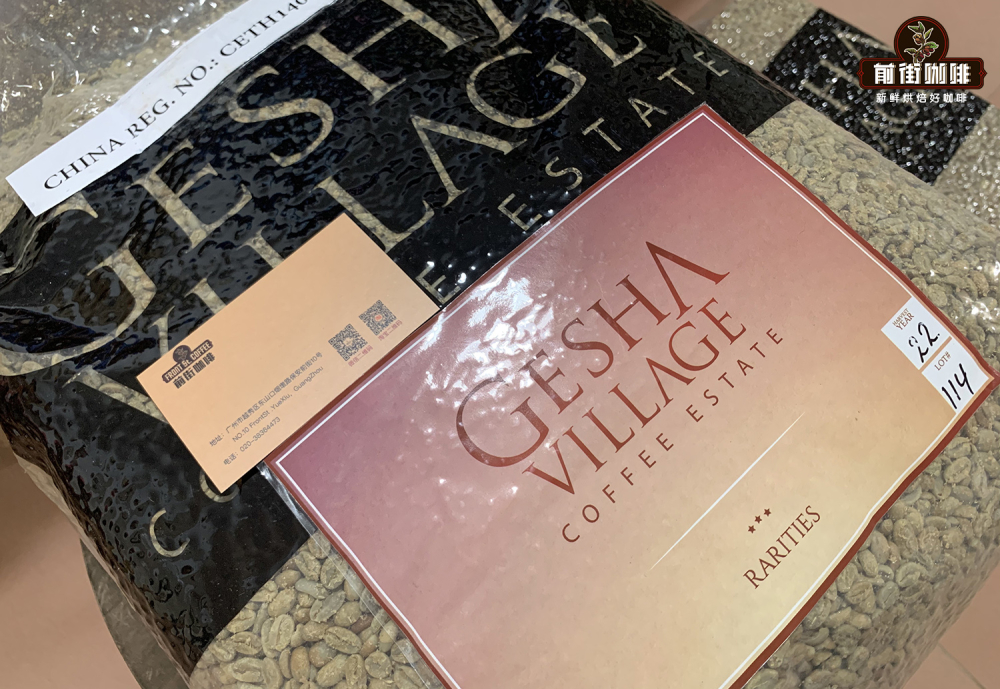
Gouache ratio: 1:15 Grinding degree: medium thickness Grinding, No. 20 sieve pass rate 80% Water temperature: 91 degrees, cooking apparatus: V60
Method: 30ml stewed with water for 30s, then injected water into 125ml for 1min, then injected water to 225ml for 1min50s, and time after coffee extraction was 2min10s.
Flavor description: fermented wine, acidity of citrus and kumquat, fullness of berry juice.
[red label batch]
The coffee beans of the red standard batch account for about 15% of the annual output of the Ruoxia village manor, with complete traceability, the cup test score is more than 88 points (sca standard), has the typical Rosa village flavor, the flavor intensity and complexity are slightly weaker than the gold standard batch, and it is a single product batch with very high performance-to-price ratio.
Gesha Village Coffee Estate Grower's Reserve
Rose Xia Village Red Standard Rose Summer
Producing area: Banchi Maggie
Altitude: 1909-2069m
Variety: Gori Rose Summer (Gorigeisha)
Treatment method: sun treatment Natural
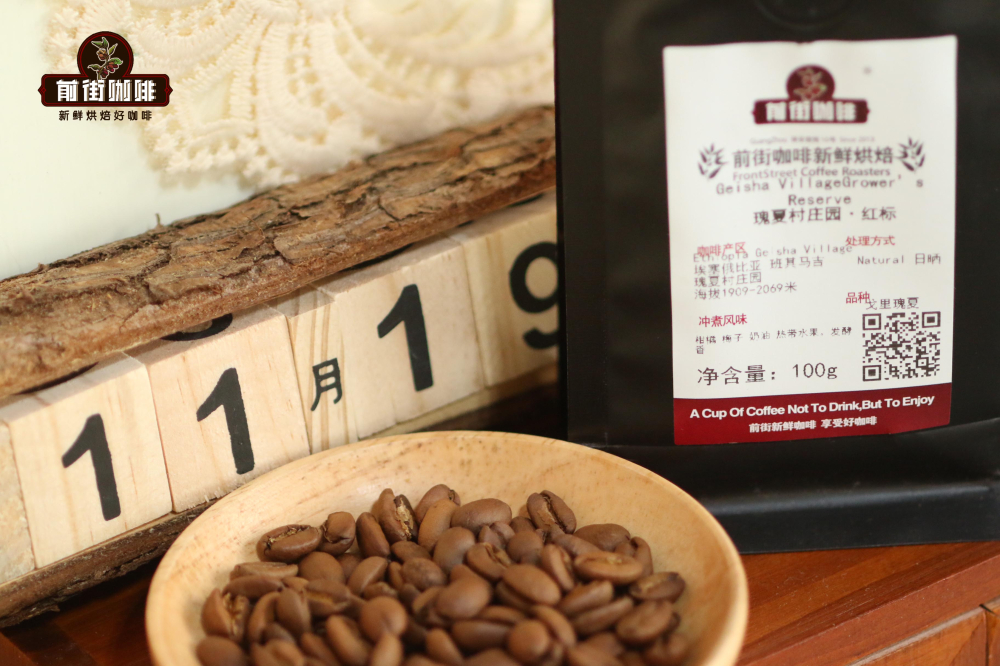
Gouache ratio: 1:15 grind degree: medium thickness water temperature: 91 degrees cooking apparatus: V60
Technique: stew with 30ml water for 35 s, then pour water into 125ml at 1: 00, then water into 225ml at 1: 50, and coffee extraction at 2: 10.
Flavor: coconut, licorice, cream, chocolate, toffee, citrus, almonds, strawberries, smell fermented. The overall flavor is more balanced, the taste is mellow, and the nut flavor is more prominent.
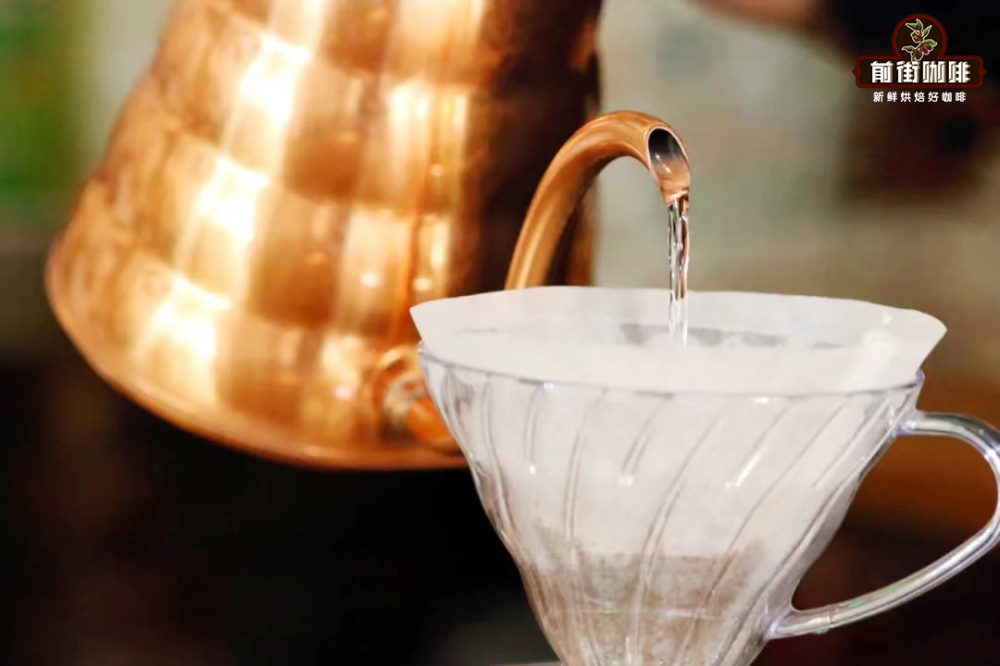
[green label batch]
The green label batch comes from a single plot of Guoxia Village Manor and is a batch of a single variety. The green label batch provides complete traceability information for each batch number, including the name of the farm plot, the variety of coffee and the date of processing.
[CHAKA batches]
Chaka batches are mixed with coffee from all the plots on the estate and throughout the production season. Chaka batch of coffee has two treatments: sun treatment and water washing treatment, including three coffee varieties in Rose Summer Village Garden, namely Rose Summer 1931, Gori Rose Summer and illubabor.
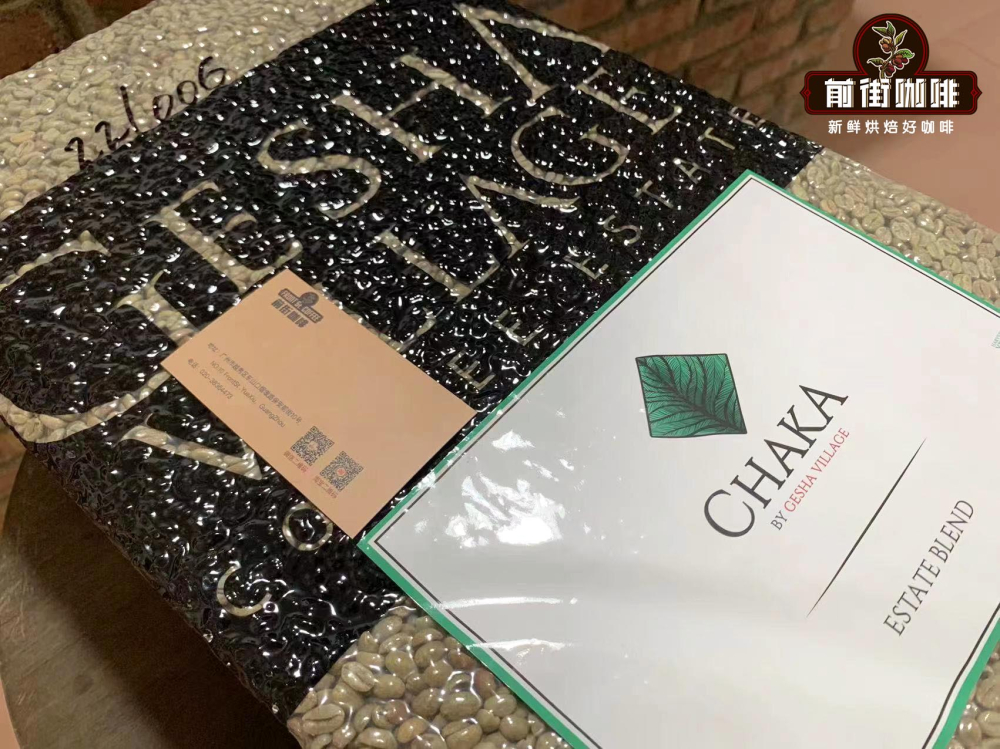
Gori Rosa Gori Gesha (GG)
This variety replicates the genetic diversity in Gori Gesha coffee forest.
Rosa 1931 Gesha 1931 (G31)
The combination of varieties with different forests is very similar to Panamanian Rosa, which is screened by observing its plant type, bean-shaped appearance, mesh size and cup flavor.
Illubabor Forest 1974 (IF)
It was found during an expedition from 1974 to the Illubabor Forest, and a variety with antibodies was later developed by the Ethiopian Research Center.
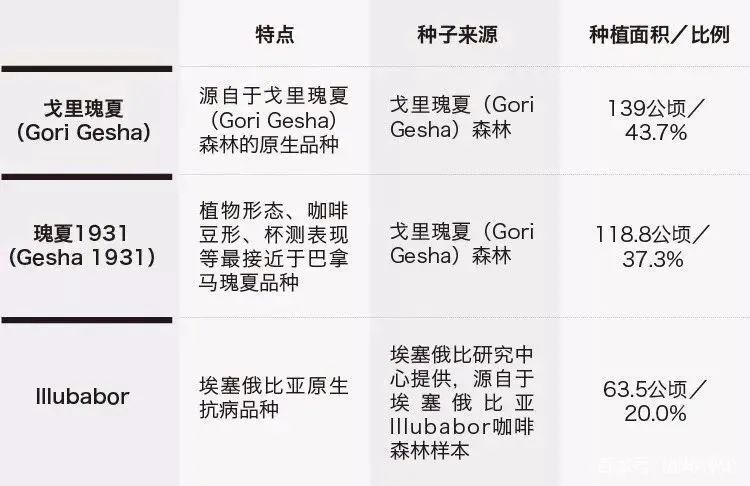
Gesha Village CoffeeEstate CHAKA
Chaka batch of Rose Xia Village
Producing area: Banchi Maggie
Altitude: 1900-2100m
Varieties: Gori gesha, gesha1931 1931, Illubabor
Treatment: sun treatment
Gouache ratio: 1:15 grind degree: medium thickness water temperature: 91 degrees cooking apparatus: hario v60
Method: stew with 30g water for 35s, then pour water into 125g for 1: 00, then pour water into 225ml for 1: 50s, and the time after coffee extraction is 2: 10.
Flavor: it smells with a hint of fermented aroma, with sour notes of citrus and grapefruit, with creamy, chocolate and caramel flavors.

"treatment method"
Gold standard, red standard and CHAKA are all treated by the sun.
First remove the floating impurities, and then cover the sun with a thin layer of plastic sheeting on the African-style elevated scaffolding. when drying with a tanning bed, they will be screened again to select worm-eaten beans and coffee beans that are green in color. The total drying time is 18-30 days.
"Partition of Manor plots in Guoxia Village"
The manor owner of Ruoxia Village has a very detailed numbering of the land, which is convenient for later management and flavor traceability.
"the area and planting varieties of different plots in Guoxia Village"
The terrain in the west of the manor is relatively high, so the three plots OMA, SURMA and SHEWA-JIBABU are slightly higher above sea level, while the shading ratio in the south is relatively higher, and the sun exposure time in the north is longer. Among the eight plots, manor managers choose the most suitable variety for each plot according to the microclimate differences such as elevation, soil conditions and shading conditions (as shown in the picture above) to ensure that each plot can form distinctive characteristics.
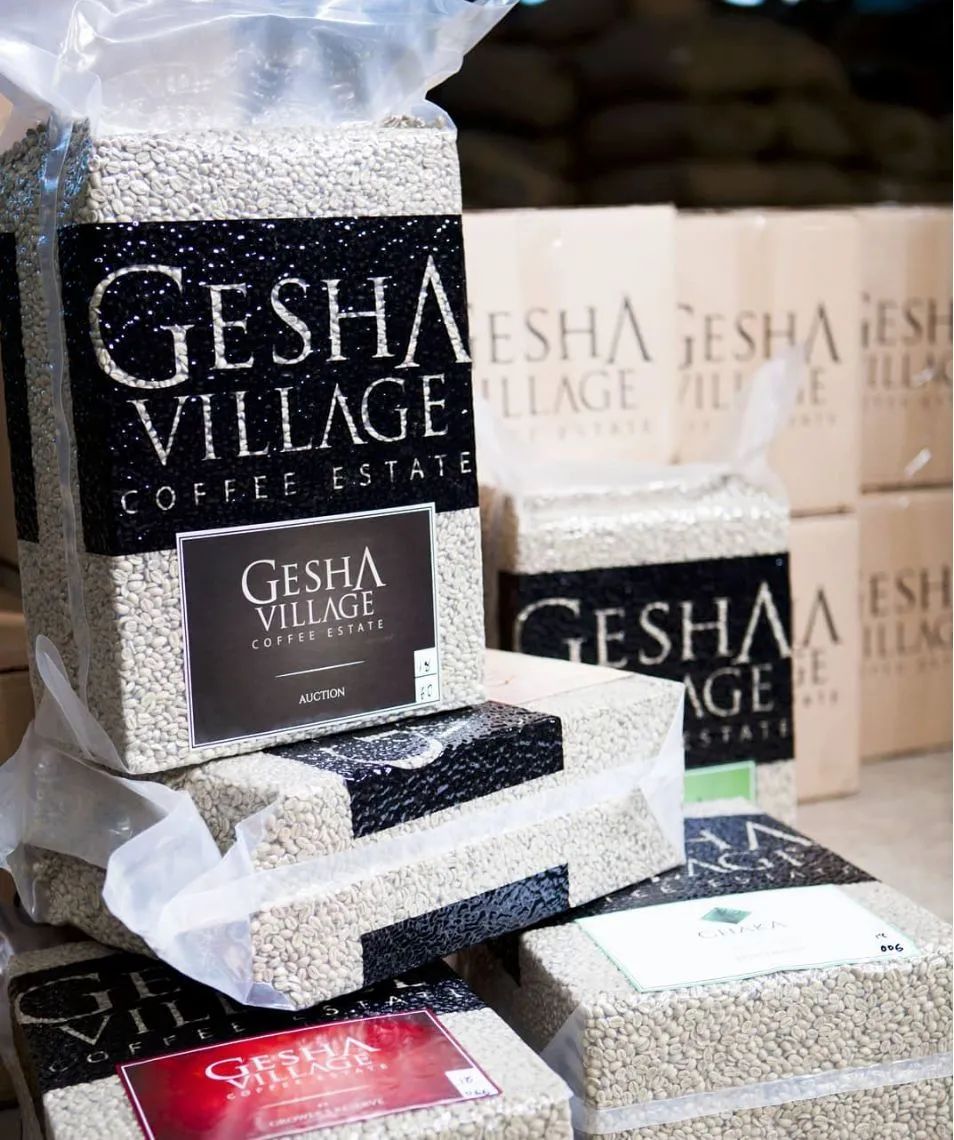
"2018 Rose Summer Village bidding lot"
Since the bidding in Ruoxia Village began in 2017, due to the phenomenon of competitive and non-competitive bidding batches with the same batch number on the market, Ruoxia Village has made great efforts to reform this year. 2018 of the bidding batches are all independent batches. The selection of bidding batches took nearly 3 months, and 31 bidding batches were finally finalized after several rounds of repeated cup testing.
Multiple rounds of strict selection of bidding batches
The first round of screening began at the end of January, when the landowners Adam and Rachel, together with their quality control team and Willem Boot consulting team as far away as the United States, began cup testing in Ethiopia and rest for more than 6 weeks. in the cup test, in order to prevent different cup test results due to different ordering, each batch of beans must go through at least two rounds of cup tests in different order to ensure accurate results.

> 2018 Rose Xia Village bidding lot to join the number of items size index
In the end, the owner and the team finally selected the best 31 batches from 117 batches, but in order to further improve the flavor of the 31 batches, the team conducted a new series of tests. By comparing different numbers of eyes, they found that beans with larger eyes performed better in cup tests. As a result, they decided that in the bidding batch, the mesh number of Rosa 1931 was 17 or more, and that of Gori Rosa and Illubabor was 16 and more. But because Ethiopia's existing mesh screening equipment can only screen beans with 14 or more mesh, landowner Adam also bought back dozens of coffee laboratories from the United States, and hired a large number of workers to manually screen the beans in the bidding batches.
> after round after round of cup tests, the bidding batches of Ruoxia Village in 2018 were finally determined, which were divided into champion selection (7 batches, only 90kg in each batch) and manor selection (24 batches, only 120kg in each batch) totaling 31 batches, including 26 sun drying batches, 4 water washing batches and 1 honey treatment batch.
Proportion of different parcels in bidding batches
In the bidding batch, the proportion of three coffee varieties in Rosa Village is 69.1% for Rosa 1931, 27.5% for Gori and 3.4% for Illubabor.
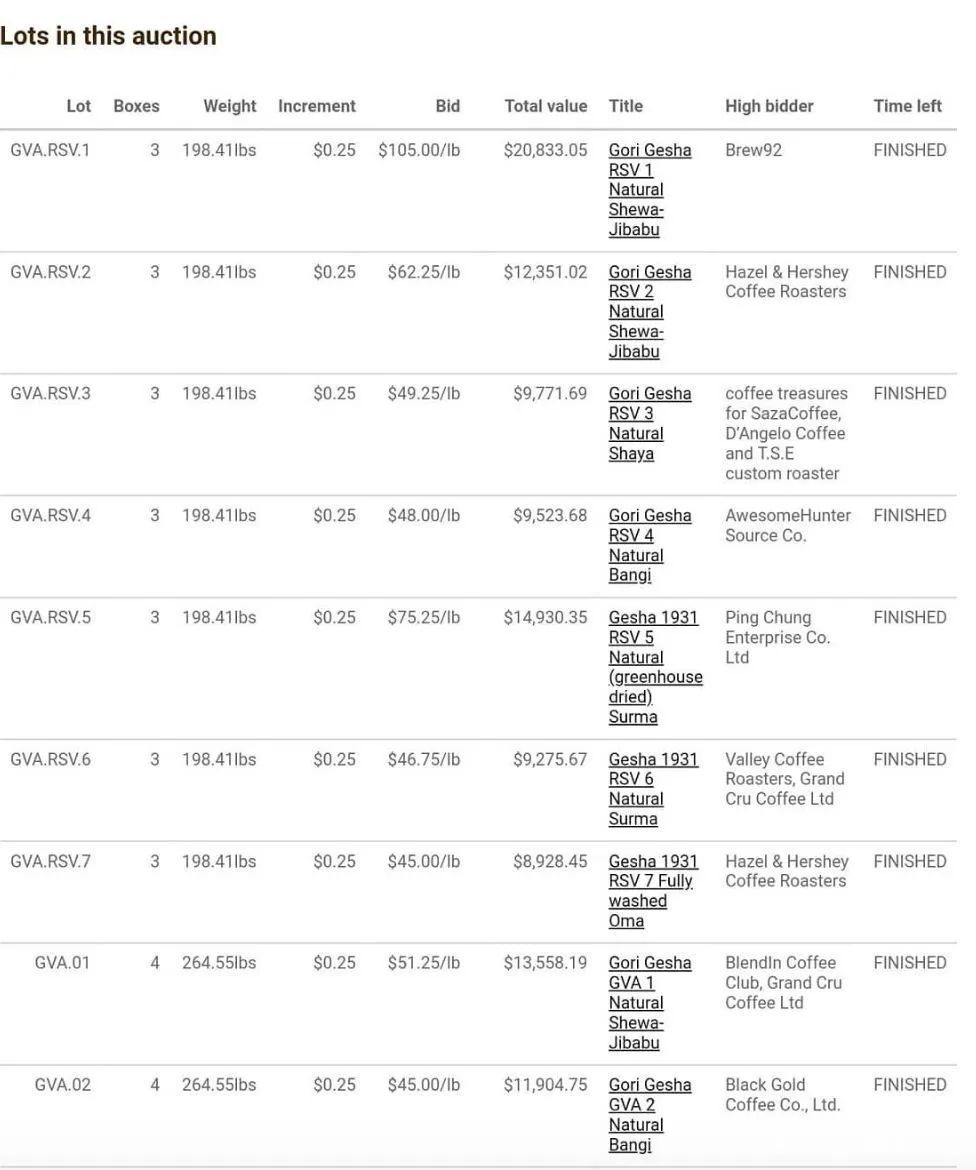
"2019 Rose Summer Village bidding lot"
The 2019 Rose Summer Village global auction kicked off in June. According to Willem Boot, the estate auction manager of Rose Xia Village, the 2019 Rose Xia Village quality control team evaluated more than 130 lots and selected high-quality lots with more than 88 points for auction. they are: champion selection batch (Champion Reserve), with 7 batches with the highest cup test score; Manor selection batch (Farm Reserve) has 13 outstanding lots. Innovative selection batch (Innovators Reserve) has only 6 experimental batches of special treatment.
Champion selection batches (7 / 14 batches)
The champion selection batch brings together the best batches of the 2019 production season in Rose Xia Village. The winner scored more than 90 in each batch and showed extraordinary characteristics in the cup test, from amazing jasmine aromas to charming complex fruit flavors such as strawberries, peaches and papayas.
Manor selection batches (13 / 13 batches)
The manor selection batch is a high-end product with excellent manor flavor, with cup test scores of 88 or more. Rich fruit flavor and expressive aroma are the characteristics of this batch, which will bring you an unforgettable flavor experience.
Innovative selection batches (6 / 6 batches)
Innovative selection batches adopt iconic special treatment methods and innovative technologies in fermentation and drying, which not only introduces extremely complex flavors for coffee, but also provides coffee lovers with a profound sensory experience.
Gold standard baking curve of Qianjie Ruoxia Village
Apart from the fact that the bidding batch is obtained from the bidding (the price is uncertain), the best product is the gold bid series. Qianjie also purchased the gold bid batch of Ruoxia Village, and Qianjie used medium-shallow baking during baking. the following is the baking curve of Qianjie:

Qianjie Ruoxia Village Jinbiao Cup Test Flavor
The cup test will be carried out in Qianjie within 8-24 hours after baking, and the flavor tonality of Jinbiao Rosa has been determined. The following is the description of the flavor of this gold standard coffee bean through the cup in the front street: White flower aroma, lemon, honey, citrus, juice, apricot.
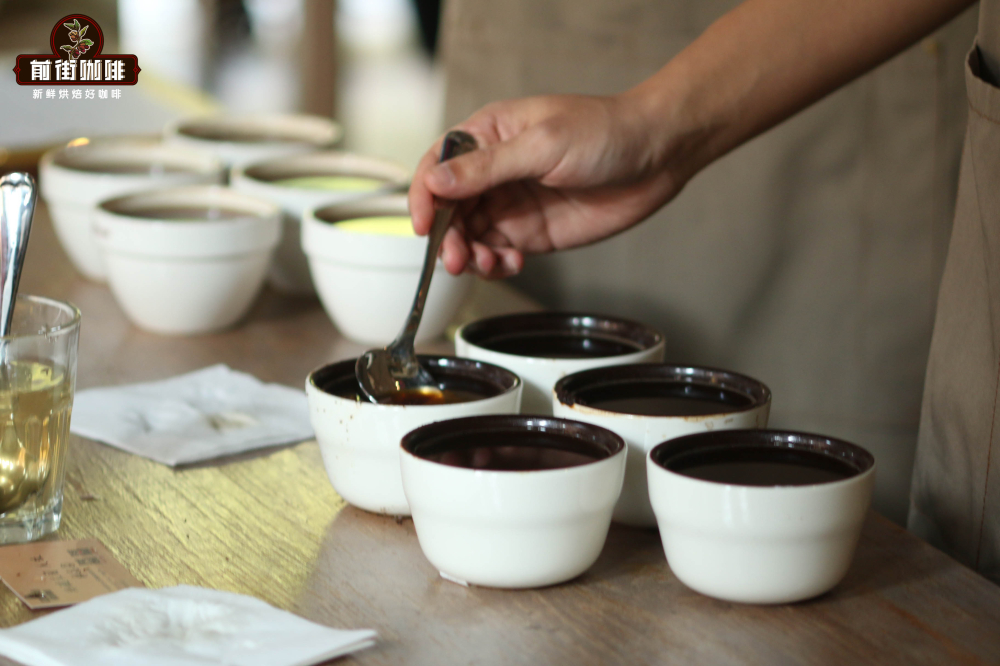
Qianjie Ruoxia Village Jinbiao cooking parameters
Coffee powder: 15g
Proportion: 1:15
Water temperature: 90 degrees Celsius
Grindability: 0.85mm20 screen pass rate 80%
Filter cup: Hario v60 # 01 filter cup
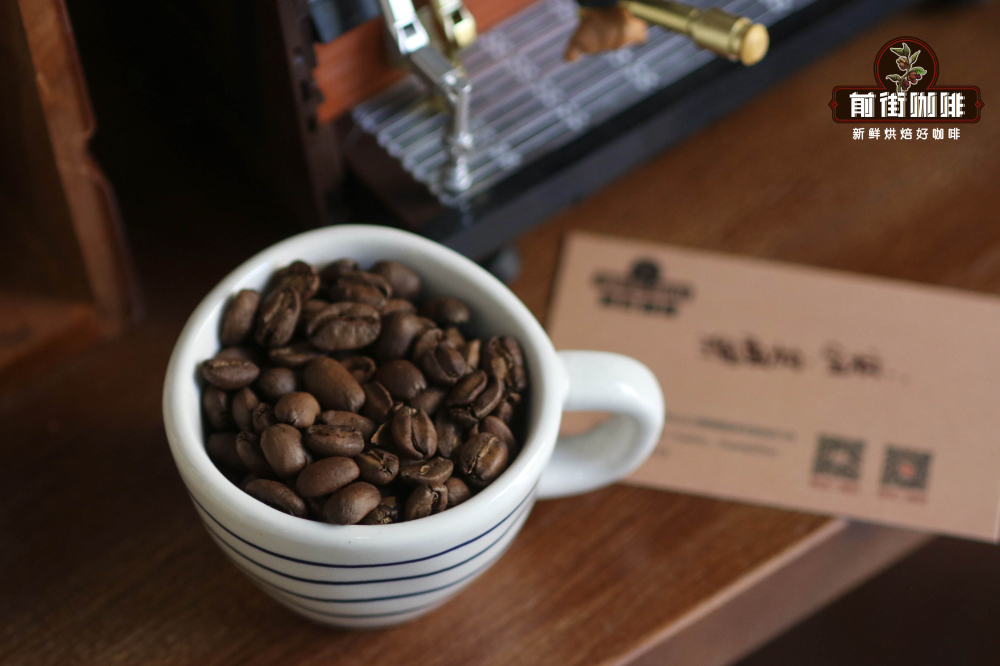
Qianjie recommends using freshly roasted coffee beans for brewing, so that you can maximize the rich flavor of the coffee. The coffee beans shipped in Qianjie are all roasted within 5 days, because Qianjie is well aware that the freshness of coffee beans has a great impact on the flavor. The purpose of Qianjie roasting is "freshly roasted coffee", so that every guest who places an order is the freshest coffee when he receives it. The bean cultivation period of coffee is about 4-7 days, so when the guest gets it, it is the time when the flavor is the best.
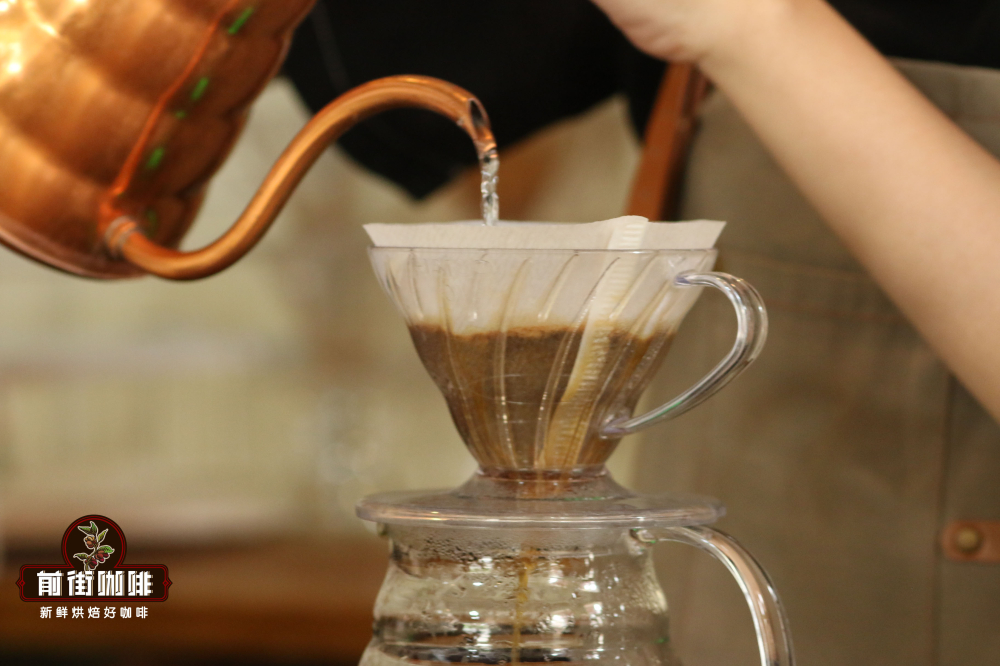
Cooking process: the first stage injects 30 grams of water for 30 seconds, the second stage injects 95 grams of water (125 grams indicated by the electronic scale), about 1 minute completes the injection, and the third stage injects 100 grams of water (225 grams shown by the electronic scale). About 1 minute and 30 seconds.
Extraction time: 2 minutes, remove the filter cup to finish cooking
Flavor description: citrus, floral, berry, cream, smooth, medium acidity, medium sweetness, moderate finish
For more boutique coffee beans, please add private Qianjie coffee on Wechat. WeChat account: kaixinguoguo0925
Important Notice :
前街咖啡 FrontStreet Coffee has moved to new addredd:
FrontStreet Coffee Address: 315,Donghua East Road,GuangZhou
Tel:020 38364473
- Prev
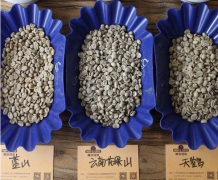
Flavor characteristics of Jamaica Blue Mountain No. 1 Coffee Taste description where can I find authentic Blue Mountain coffee beans?
According to data from the World Trade Organization and Chinese Customs, the total global exports of Jamaica in the past five years are as follows: 842 tons in 2011, 2012, 592 tons in 2013, 692 tons in 2013, 449 tons in 2014, and 555 tons in 2015. China's imports in the past five years are as follows:
- Next
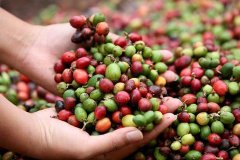
2016 Panama BOP Champion-Alida Coffee Manor Award record Origin Information introduction
For the exchange of professional baristas, please follow the coffee workshop (Wechat official account cafe_style) Product name: 2016 Panama BOP champion Alida Manor Solar Tibica varieties Micro-batch (non-competitive lot) (Panama Boquete Elida Natural Typica) Flavor description: tropical fruit sweetness, dried mango, banana and chocolate milk, grape, caramel sweet, flat
Related
- Detailed explanation of Jadeite planting Land in Panamanian Jadeite Manor introduction to the grading system of Jadeite competitive bidding, Red bid, Green bid and Rose Summer
- Story of Coffee planting in Brenka region of Costa Rica Stonehenge Manor anaerobic heavy honey treatment of flavor mouth
- What's on the barrel of Blue Mountain Coffee beans?
- Can American coffee also pull flowers? How to use hot American style to pull out a good-looking pattern?
- Can you make a cold extract with coffee beans? What is the right proportion for cold-extracted coffee formula?
- Indonesian PWN Gold Mandrine Coffee Origin Features Flavor How to Chong? Mandolin coffee is American.
- A brief introduction to the flavor characteristics of Brazilian yellow bourbon coffee beans
- What is the effect of different water quality on the flavor of cold-extracted coffee? What kind of water is best for brewing coffee?
- Why do you think of Rose Summer whenever you mention Panamanian coffee?
- Introduction to the characteristics of authentic blue mountain coffee bean producing areas? What is the CIB Coffee Authority in Jamaica?

